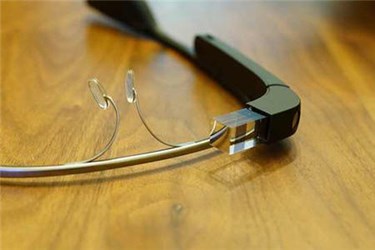Consumers, Especially Millenials, Embrace Wearable Technology
By Ally Kutz, contributing writer

In October, PwC released The Wearable Future report, a segment in its Consumer Intelligence Series. The data collected estimates that sales could reach well over 130 million units and gross more than $6 billion by 2018.
The study — which sampled 1,000 consumers across age, income, region, and gender — found that when compared to adults aged 35 and older, millenials are 55 percent more likely to own wearable technology and 67 percent more likely to find it interesting and use it as much as possible.
According to the study, more than 40 percent of Americans now own a tablet, a number that has doubled in the last two years alone, and more than 75 percent of consumers say they would not need the wearable device to replace another technology they have to be able to justify its purchase — this projects a steady increase in ownership of wearable devices over the next few years, which is now at about 21 percent of Americans.
Currently, price is the lead factor in the decision to purchase wearable technology. Many are more willing to implement wearable devices if paid for by an institution, such as a retailer or business, instead of having to pay for it themselves; 46 percent even go as far as to say that their company should fund the purchase. Interest in smart technologies paid for by an institution ranges from 51 to 72 percent, whereas interest in devices purchased by the user reflects at a much lower 27 to 42 percent.
Millenials are leading the market, with more than 50 percent estimated to purchase fitness bands next year, while 23 to 40 percent will purchase other wearable devices. They are looking for devices to tell them their exercise efficiency (81 percent of people), their dietary and medical info (71 percent), and deals on retail purchases (51 percent); more than half stated that they would be strongly motivated to use a wearable technology if it had a feature to monetarily reward those who frequently use it.
Efficiency is key in the wearable devices market. More than 70 percent of people believe that wearable tech will make people more productive at work and will help to improve customer service, and around 50 percent believe that obesity rates will go down and life expectancy will increase, on average, by 10 years.
Although ready to welcome advancements in wearable tech, a majority of those surveyed voiced concerns over its shortcomings. Close to 90 percent of consumers believe that wearable devices will invade the user’s privacy and make them extremely vulnerable to security infringements, while roughly 65 percent believe wearable devices will lead to the use of too many devices and dependence on technology. Between 30 and 40 percent of participants even admitted that they do not believe they would actually use smart technology, including smart watches, fitness bands, and smart glasses.
Visit BSMinfo.com for predictions on the wearable technology market, and CompTIA’s study on the IoT and opportunities for the IT channel.
To read more about the report and to download a copy, visit this site.
